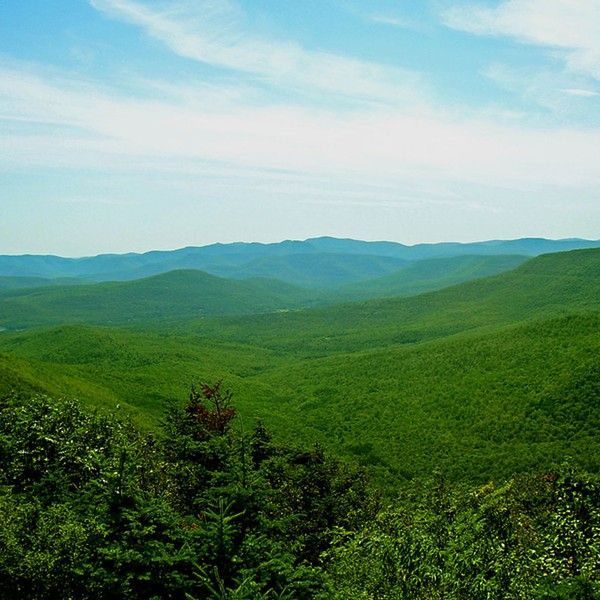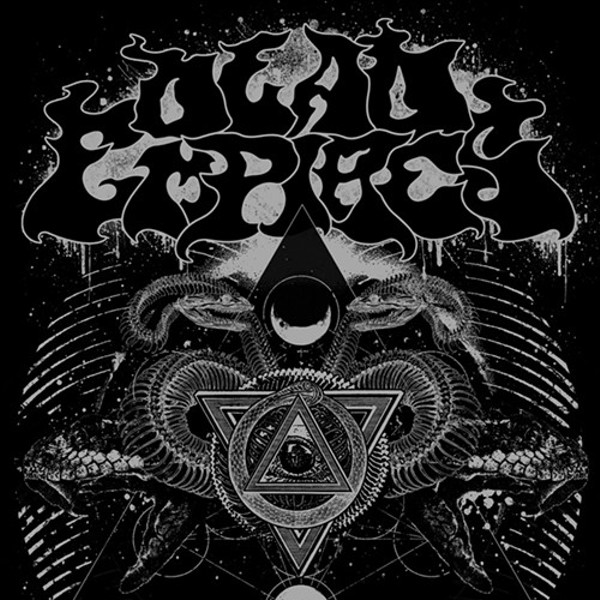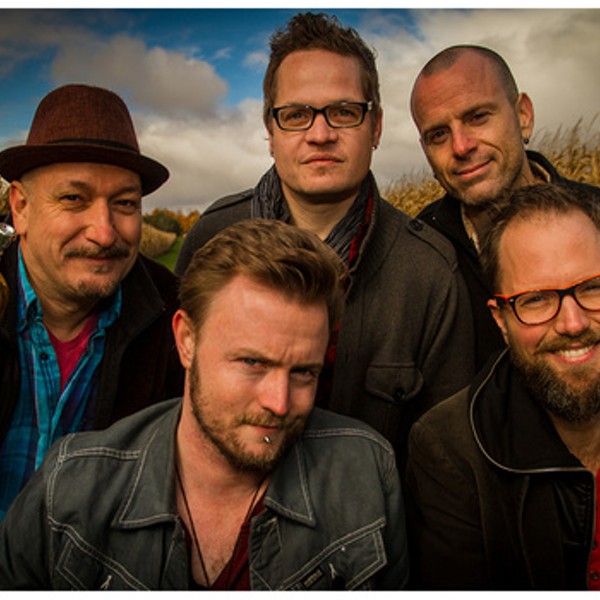Immigration in Ireland is a predominant way of life," says the playwright John B. Keane in the 2009 documentary Out of Ireland. "It has been going on since the Milesians landed in South Kerry over 2,000 years ago, and I suspect it will go on forever." During the 18th, 19th, and 20th centuries over seven million Irish immigrants, looking for relief from the crushing poverty, famine, and persecution that have plagued their homeland for centuries, settled in America. Besides contributing to the Great American Narrative in so many other ways, many of these expatriates also brought along their music, a reminder of the more pleasant aspects of their origins. One of them was Monsignor Charlie Coen, perhaps better known as Father Charlie Coen.
Coen, who came here in 1955, has for decades been revered as one of the leading figures of Irish traditional music in America, a man who's done much to preserve this rich and stirring art form by performing it and passing it along as an educator. Although his signature instrument is the concertina, he's also a demon on the flute and tin whistle and as a traditional sean-nós (unaccompanied) singer, and has won All-Ireland Championships in all four categories, some repeatedly, and has been inducted into two the halls of fame at two Irish music organizations. It's been a long journey from the farming hamlet of Drimnmuckla in County Galway, where he was born in 1933.
"There were exactly nine houses there, it was very self-sufficient," Coen says. "Drimnmuckla is just outside of the village of Woodford, which isn't much bigger itself. Woodford had six pubs then; now it has two, and they're open on alternate days. The biggest job for the police was probably checking dog licenses." The future priest and his nine brothers worked the family farm, raising potatoes, barley, and other crops and tilling the fields with a horse-drawn plow. Their father played concertina (a small, accordion-like instrument with hexagonal ends), and there were five or six other musicians in the area. "I didn't hear a radio until I was 12, and my family didn't own one until I was 16," recalls Coen. "But I had heard music before that. My father would play tunes his father and grandfather taught him, and I sang in the church choir. There would be dance parties several times a year in people's houses and at the half-year in the Golden Vale [in the province of Munster] there would be a cattle market festival, where farmers would bring calves by rail to sell and play music, as well."
Charlie was in thrall to his older brother Jack, who played fife in a home defense force fife and drum band. It would take some time before the younger Coen acquired his first instrument. "I started out on tin whistle when I was 13 because it was the only thing I could get," he says. "During World War II all materials were rationed, and you just couldn't find instruments. Later on my oldest brother, Paddy, who was living in London, got me a wooden flute, which was just impossible to find where we were." Coen eventually purchased his first concertina at age 19, during a three-month stay in England. "It wasn't a very good one, though—a Crabb, which split from the humidity when I brought it to America. I was drawn to the concertina because my father played one, but also because it seemed like the instrument was becoming extinct. Nobody was playing it anymore."
It was from Jack that Charlie would learn much of his technique and repertoire, which contains regional dance pieces like the effervescent "Buckley's Reel" and "The Copper Plate" (both performed by him on Rounder Records' 1977 compilation Traditional Irish Music in America: The East Coast). "County Galway is right next to County Claire, and there isn't too much of a difference between the music from both places," Coen explains. "Galway style is perhaps more flowing, with less ornamentation, and Claire style is more robust, more daring. In the north you have [County] Sligo style, which is also very bold; Sligo flute playing involves a lot of hard puffing, while with Galway style the idea is to not show any breathing."
For Coen, an asthmatic, it was issues with breathing that forced him to follow Jack to America. "I was 22 and I only weighed 117 pounds," he says. "I just couldn't live on the farm anymore, with the damp air such as it was." He had a cousin in the fresh-air Catskills, a practicing priest, so he took a job as a dishwasher at a Monticello hospital before eventually becoming a bellhop at fabled Borscht Belt resort Grossinger's Hotel. "Within three months I weighed 160 pounds and the asthma hasn't bothered me since. Jack had started playing with a lot of New York musicians back then and I would sometimes go down to play with them, but I had no inclinations musically beyond that." Indeed, Coen's inclinations were in other areas: Four years after his arrival, he'd begun his studies for the priesthood. "I suppose I was attracted to it from being around my cousin, and because I'd grown up with the Church," says Coen. "There was no 'voice from Heaven' or anything like that. It was a hard decision, though, because I was a grade school dropout and it was supposed to be an eight-year program—it ended up being nine. Learning Latin was difficult."
After surviving a seminary fire that destroyed his instruments (the same site burned down again after being rebuilt), Coen was ordained in 1968. He became an assistant pastor on Staten Island, where for 18 years he organized concerts by visiting artists and gave lessons in Irish singing and taught Gaelic songs to his parishioners' children. One of his pupils, an African-American girl, went on to win first prize in her age division for sean-nós singing at the New York Fleadh competition, and over 40 of the kids would make up the haunting choir heard on his only solo album, Father Charlie (1979, Green Linnet/Innisfree Records). "Some of the students had a reunion concert for me a few years ago, and they all remembered the songs," beams a proud but seemingly stunned Coen.
In 1976 Coen, now back and playing at full force, did something no Irish-American musician had done before: At the esteemed Fleadh Cheoil na hÉireann competition he won All-Ireland senior championship titles on three different instruments—concertina, tin whistle, and concert flute. In the following years he took two more All-Ireland titles for concertina and one for sean-nós singing, making him a true legend of the 61-year-old competition. He also toured as a member of Green Fields of America, a Smithsonian Institution/National Endowment for the Arts-backed ensemble led by musician, folklorist, and educator Mick Moloney. Moloney, still a prime mover of the Irish folk revival, also produced The Branch Line (1977, Topic Records), an album by Jack and Charlie Coen. "Mick had a tape recorder he'd borrowed from the Smithsonian," the younger brother remembers. "We recorded the whole album in about two hours at Jack's house in the Bronx." Featuring transcendent solo and duo performances of classic reels, jigs, hornpipes, flings, and polkas, the record, reissued once but now sadly out of print, is a genre landmark and has been hailed by All Music Guide as "real traditional Irish music at its best."
Coen became the pastor of Saint Christopher's Church in Red Hook in 1986, where he gave private music lessons and continued the concert series he'd started Downstate. During its run the series presented some of the biggest names in Irish entertainment, including musical acts Clannad, the Dubliners, Frank Patterson, and Cherish the Ladies and comedian Hal Roach. It was while living in Red Hook that Coen began the now-legendary sessions held on first and second Sundays for 17 years at the nearby Rhinecliff Hotel and Rhinebeck American Legion Post. The soirees at the former site are recalled with particular fondness by the musicians and attendees who were there, one of whom is accordionist Dan Gurney, a former student of Coen's.
"I was seven or eight when my parents started bringing me [to the sessions]," says Gurney, an All-Ireland medalist who recently debuted with Traditional Irish Music on the Button Accordion (2012, Independent). "Back then the Rhinecliff Hotel had cinder block walls, and there was one bare light bulb hanging over the band. It was the perfect environment for Irish music, which isn't about concert halls—it's about people getting together to really be part of the music." The raucous Rhinecliff closed in 2003 but reopened as a renovated bed and breakfast a few years later, and has since hosted occasional Irish sessions by Coen and others.
Father Coen became Monsignor Coen two years before he retired in 2008. "It's just a title given for services rendered over time, it doesn't mean any extra money or anything," he says with a laugh. He now lives in Greenville, which, along with nearby Durham and East Durham ("the Emerald Isle of the Catskills"), is rich in Irish-American culture. For decades the spot has been home to numerous retired New York police officers and fireman of Irish descent, the story being that this particular slice of Greene County's green and rocky terrain reminds them of their homeland. In addition to containing the Michael J. Quill Irish Cultural and Sports Centre and for many years the Irish American Heritage Museum (recently reopened in Albany), every July the area hosts the Catskills Irish Arts Week festival, at which Coen has been a regular performer.
The Monsignor doesn't perform as much these days, however, although he does frequently get together privately with other players "just to swap a few tunes." With his dual careers with the cloth and the chord, one wonders if there are any commonalities between being a musician and being a priest. "Well, with both there's a desire to communicate truth and beauty," he says. "But of course with musicians there is also the desire to communicate the sense of self." Looking back at his nearly 70 years as a musician and a music teacher, what is it he's most proud of?
"I guess it's that I've been able to convey the beauty of Irish music, to bring life and peace to people in that way," says Coen. "I never did think too much about connecting to the past, or about how it's good to pass the music on to later generations, or anything like that, really. I just thought of the fun of playing it."
Monsignor "Father" Charlie Coen will perform with fiddler Dylan Foley, guitarist Ian Worpole, and singer Sarah Underhill at the Rosendale Cafe on March 4 at 4pm. Rosendalecafe.com.


















